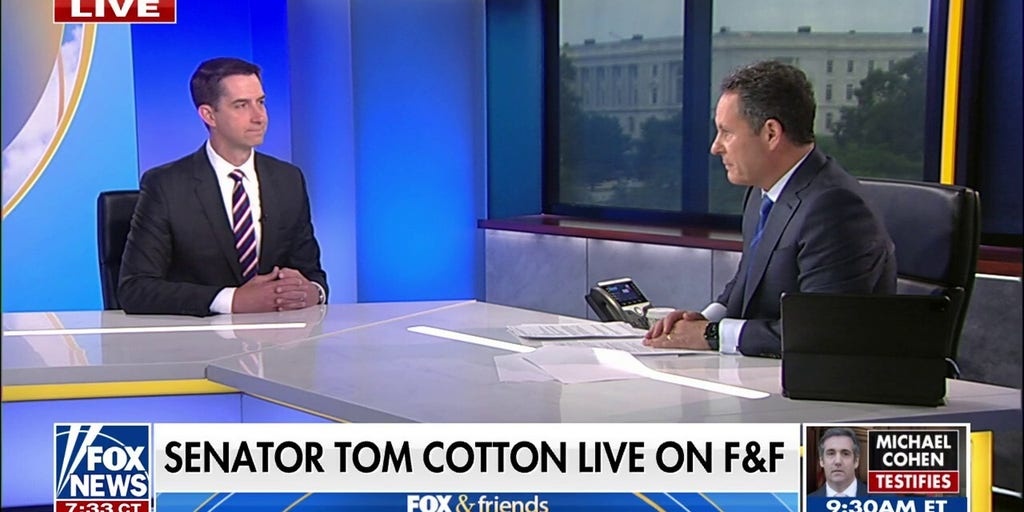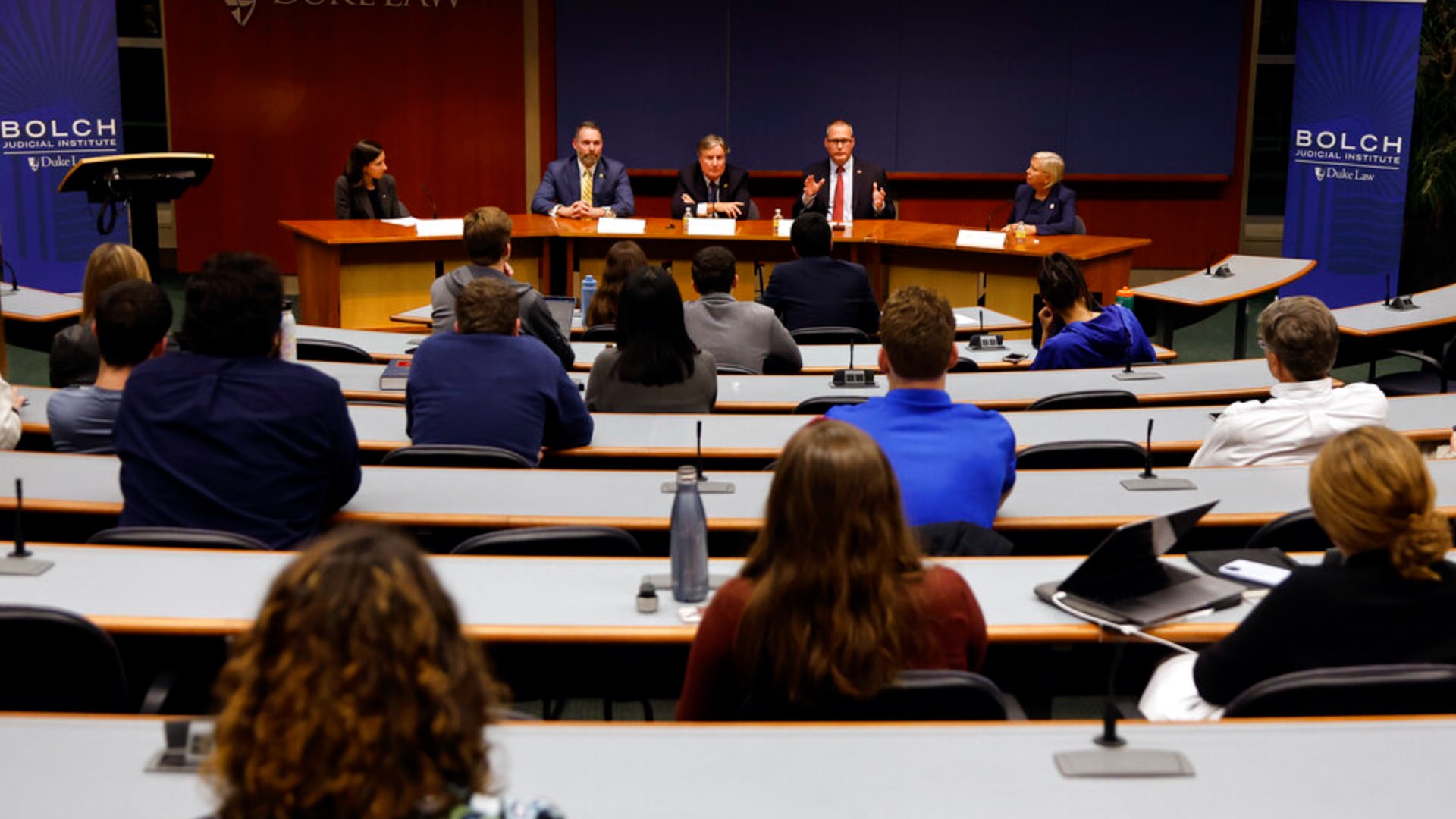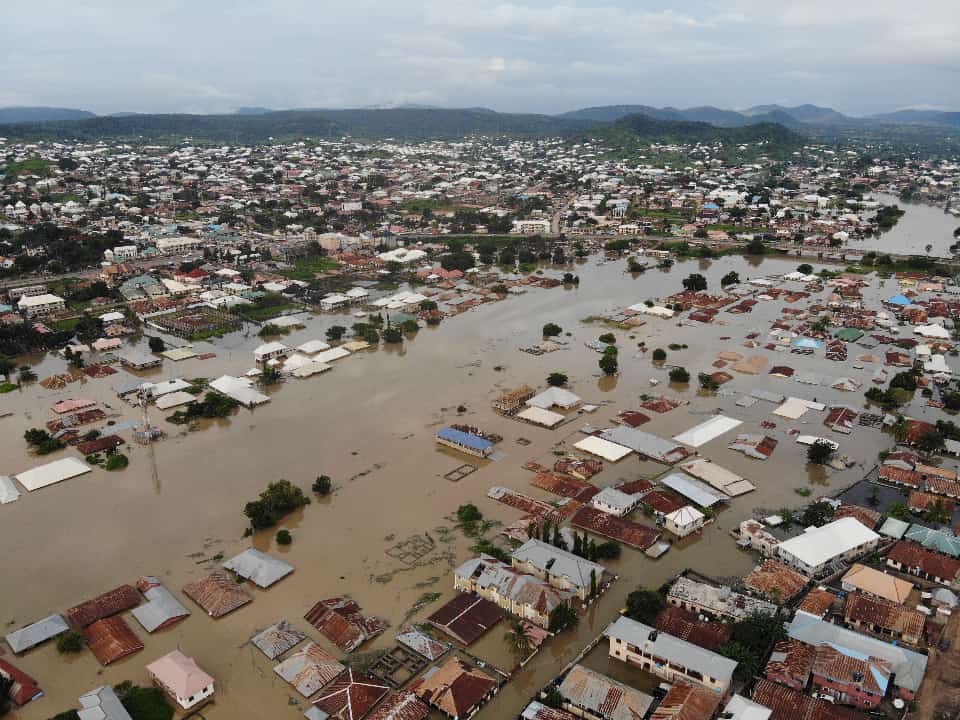Is Joe Biden Responsible For The Economic Slowdown? A Critical Analysis

Table of Contents
Biden Administration Policies and Their Economic Impact
The Biden administration's policies have faced significant scrutiny regarding their contribution to the economic slowdown. Critics point to several key areas as potential culprits.
Inflation and the Spending Bills
The American Rescue Plan (ARP) and other substantial spending bills enacted during the Biden administration have been criticized for contributing to inflation. The argument centers on the idea that injecting large sums of money into the economy, while supply chains remained disrupted, increased demand without a corresponding increase in supply, leading to price increases.
- Increased demand: The ARP provided significant stimulus payments to individuals and businesses, boosting aggregate demand.
- Supply chain disruptions exacerbated by spending: Increased demand further strained already fragile supply chains, leading to shortages and higher prices.
- Potential links between increased money supply and inflation: The increased government spending contributed to a larger money supply, which some economists believe is inflationary.
The debate remains ongoing, with supporters arguing that the ARP was necessary to mitigate the economic fallout from the COVID-19 pandemic. However, the correlation between increased government spending and subsequent inflation remains a significant point of contention in the discussion of economic responsibility.
Energy Policy and its Effects
The Biden administration's approach to energy policy, emphasizing a transition away from fossil fuels and towards renewable energy, has also been linked to the economic slowdown. Critics argue that policies limiting fossil fuel production have contributed to higher energy prices, impacting businesses and consumers alike.
- Impact of reduced oil and gas production: Regulations and limitations on fossil fuel extraction are argued to have reduced domestic supply, driving up prices.
- Investment in renewable energy and its long-term implications: While the transition to renewable energy is seen as crucial for long-term sustainability, the short-term economic impacts of this shift are significant and complex.
- Global energy market fluctuations and their contribution: The war in Ukraine further exacerbated global energy market volatility, making it difficult to isolate the impact of domestic policies.
The administration counters that investing in renewable energy is a long-term strategy that will benefit the economy in the long run, and that the reliance on fossil fuels is inherently unsustainable.
Trade Policies and Global Economic Uncertainty
The Biden administration's trade policies, including tariffs and renegotiation of trade agreements, have also been analyzed for their potential contribution to the economic slowdown. These policies, while aimed at protecting American businesses and workers, can also lead to higher prices for consumers and increased uncertainty for businesses.
- Tariffs and their impact on consumers: Tariffs increase the cost of imported goods, impacting consumer prices.
- Negotiations with trading partners: Renegotiating trade deals can create uncertainty and potentially disrupt established supply chains.
- Impact of global events on the US economy: Global events such as the war in Ukraine and ongoing supply chain disruptions significantly impact the US economy, making it challenging to isolate the effects of specific domestic policies.
Alternative Explanations for the Economic Slowdown
Attributing the economic slowdown solely to the Biden administration's policies would be an oversimplification. Several other factors contributed to the current state of the economy.
Global Economic Factors
The global economy has faced significant headwinds in recent years, significantly impacting the US.
- Lingering effects of the pandemic: The COVID-19 pandemic created widespread economic disruption, the effects of which continue to reverberate.
- Global inflation and its transmission to the US: Global inflation, driven by various factors, has impacted the US economy, making it more difficult to control domestic inflation.
- Impact of the war in Ukraine on energy and food prices: The war in Ukraine has dramatically increased energy and food prices globally, impacting the US economy.
These global factors cannot be ignored when assessing the economic slowdown.
Pre-existing Economic Conditions
The US economy faced significant challenges even before the Biden administration took office.
- Existing debt levels: High levels of national debt created economic vulnerabilities.
- Structural issues in the economy: Underlying structural issues, such as income inequality and declining productivity in some sectors, contributed to economic weakness.
- Long-term trends in productivity: Long-term trends in productivity growth have been slowing, impacting overall economic growth.
These pre-existing conditions must be considered when evaluating the current economic situation and the administration's economic responsibility.
Assessing the Biden Administration's Response
The Biden administration has implemented various measures to address the economic slowdown, including fiscal and monetary policy interventions.
Government Actions to Address the Slowdown
- Fiscal policy measures: The administration has used fiscal policy tools such as increased spending and tax credits to stimulate the economy.
- Monetary policy actions by the Federal Reserve: The Federal Reserve has implemented monetary policy actions, primarily interest rate hikes, to combat inflation.
- Successes and failures of government initiatives: The effectiveness of these measures is subject to ongoing debate and economic analysis.
Conclusion:
This analysis has explored the complex factors contributing to the current economic slowdown, examining the role of President Biden's policies alongside broader global and domestic influences. While some argue that the administration's actions have exacerbated economic challenges, others point to global factors and pre-existing economic conditions as primary drivers. Ultimately, determining the precise degree of responsibility requires a nuanced understanding of the interconnectedness of these factors. Further research and ongoing economic data analysis are crucial for a complete picture of the situation and a more definitive answer to the question: Is Joe Biden responsible for the economic slowdown? Understanding these complexities is crucial for informed civic engagement and participation in shaping future economic policies. Continue to research the impacts of economic policy to better understand this complex issue and its implications.

Featured Posts
-
 Shrimp Ramen Stir Fry A Flavorful Weeknight Meal
May 02, 2025
Shrimp Ramen Stir Fry A Flavorful Weeknight Meal
May 02, 2025 -
 North Carolina Supreme Court Race Gop Candidate Appeals Recent Rulings
May 02, 2025
North Carolina Supreme Court Race Gop Candidate Appeals Recent Rulings
May 02, 2025 -
 Trumps Tariffs Automakers Struggle With Uncertainty
May 02, 2025
Trumps Tariffs Automakers Struggle With Uncertainty
May 02, 2025 -
 Leaked Whats App Messages Ignite Reform Party Civil War
May 02, 2025
Leaked Whats App Messages Ignite Reform Party Civil War
May 02, 2025 -
 Hundreds Stranded After Kogi Train Malfunction
May 02, 2025
Hundreds Stranded After Kogi Train Malfunction
May 02, 2025
Latest Posts
-
 Accessibility Audit Elizabeth Line And Wheelchair Users
May 10, 2025
Accessibility Audit Elizabeth Line And Wheelchair Users
May 10, 2025 -
 Wheelchair Accessibility Issues And Solutions On The Elizabeth Line
May 10, 2025
Wheelchair Accessibility Issues And Solutions On The Elizabeth Line
May 10, 2025 -
 Elizabeth Line Gaps In Accessibility For Wheelchair Users And Solutions
May 10, 2025
Elizabeth Line Gaps In Accessibility For Wheelchair Users And Solutions
May 10, 2025 -
 Cheap Elizabeth Arden Skincare Smart Shopping Guide
May 10, 2025
Cheap Elizabeth Arden Skincare Smart Shopping Guide
May 10, 2025 -
 Navigating The Elizabeth Line A Wheelchair Users Perspective
May 10, 2025
Navigating The Elizabeth Line A Wheelchair Users Perspective
May 10, 2025
